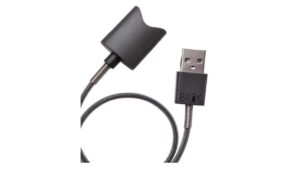A bad alternator can indeed drain your battery. If you’ve ever experienced the frustration of a dead battery even after a recent replacement, the culprit might just be a faulty alternator. This essential component of your vehicle’s electrical system is responsible for recharging the battery while the engine is running. So, when the alternator malfunctions and fails to provide sufficient power, the battery starts to lose its charge. In this article, we will delve into the details of how a bad alternator can drain your battery, the signs to look out for, and the possible solutions to this common automotive problem. So, let’s explore the world of alternators and batteries, and uncover the connection between them.
Can a Bad Alternator Drain Your Battery?
When it comes to car batteries, many factors can contribute to their failure. One common issue that car owners often face is a drained battery. While there are several potential causes for a dead battery, a faulty alternator is a significant culprit. In this article, we will delve into the relationship between a bad alternator and a drained battery, exploring the signs, causes, and solutions to this problem.
Understanding the Alternator’s Role in the Car’s Electrical System
Before we dive into how a bad alternator can drain your battery, let’s first understand the alternator’s role in your car’s electrical system. The alternator plays a crucial role in generating electrical power and charging the battery while the engine is running.
As your car’s engine runs, it powers the alternator through a belt connected to the crankshaft. This mechanical power is converted into electrical energy by the alternator, which then charges the battery and supplies energy to various electrical components in the vehicle.
How a Bad Alternator Can Drain Your Battery
Now that we have a basic understanding of the alternator’s function let’s explore how a bad alternator can drain your battery. When an alternator starts to fail, it may not generate enough electrical power to charge the battery adequately.
Here are a few key scenarios where a bad alternator can lead to a drained battery:
- Insufficient Charging: A failing alternator may not provide enough power to recharge the battery while the vehicle is running. Consequently, the battery’s charge level will gradually deplete over time, eventually leaving it drained.
- Parasitic Draw: A bad diode in the alternator can cause a parasitic draw, which is a continuous discharge of the battery even when the car is off. This draw can drain the battery completely if left unchecked.
- Failure to Maintain Charge: In some cases, the alternator may intermittently generate power but fail to maintain a consistent charge. This can result in insufficient charging, causing the battery to drain over time.
Signs of a Bad Alternator
Identifying the signs of a bad alternator is crucial in preventing a drained battery and potential breakdowns. Here are some common indicators that your alternator may be failing:
- Dimming Headlights: If your headlights appear noticeably dimmer than usual, it could indicate an issue with the alternator.
- Warning Lights: Pay attention to dashboard warning lights, such as the battery or charging system warning light. If they illuminate, it’s a clear indication of a problem with the charging system.
- Electrical Problems: A failing alternator can also manifest as electrical issues in the vehicle. These may include flickering interior lights, non-functioning power windows, or a malfunctioning radio.
- Strange Noises: Listen for any unusual noises, such as squealing or grinding, coming from the engine. These noises could be a sign of a failing alternator.
- Battery Problems: While a bad alternator is often the cause of a drained battery, it can also result in other battery-related issues. These may include difficulty starting the car or frequent battery replacements.
Causes of a Bad Alternator
Several factors can contribute to the deterioration of an alternator. Understanding these causes can help you prevent a bad alternator and a drained battery. Here are some common causes:
- Age and Usage: Alternators, like most car components, have a limited lifespan. Over time, the internal components may wear out, reducing the alternator’s effectiveness.
- Electrical Overload: Subjecting the alternator to excessive electrical loads, such as running multiple high-power accessories simultaneously, can strain the alternator and lead to premature failure.
- Malfunctioning Diode: A faulty diode within the alternator can cause electrical issues, including a parasitic draw, which drains the battery even when the car is off.
- Seized Bearings: Over time, the bearings in the alternator can seize, causing increased friction and affecting its ability to generate power.
Dealing with a Bad Alternator
If you suspect a bad alternator is causing your battery to drain, it’s essential to address the issue promptly. Ignoring the problem can lead to more severe electrical issues and potentially leave you stranded. Here are steps you can take:
- Perform a Battery Test: Before concluding that the alternator is at fault, have your battery tested to ensure it isn’t the primary cause of the drainage.
- Check the Alternator Belt: Inspect the alternator belt for signs of damage, such as cracks or excessive wear. A loose or damaged belt can interfere with the alternator’s charging capabilities.
- Inspect Wiring Connections: Loose or corroded wiring connections can also affect the alternator’s functionality. Check all connections and clean or tighten them as necessary.
- Replace the Alternator: If all other potential causes have been ruled out, and the alternator is indeed faulty, replacing it is the most effective solution. Consult a professional mechanic to ensure the correct alternator is installed.
Remember, when replacing the alternator, it’s crucial to choose a high-quality replacement from a reputable source. This will help ensure the new alternator performs optimally and prolong its lifespan.
In Conclusion
A bad alternator can indeed drain your battery, leading to frustrating and inconvenient situations. Understanding the signs, causes, and potential solutions for a bad alternator is vital for maintaining a reliable and functional vehicle. Regular maintenance, periodic inspections, and prompt action can help prevent a bad alternator and extend the lifespan of your battery. If you suspect an issue with your alternator or battery, don’t hesitate to consult a trusted professional for assistance.
Frequently Asked Questions
Can a bad alternator drain your battery?
Yes, a bad alternator can indeed drain your battery. The alternator is responsible for charging the battery while the engine is running. If the alternator is faulty, it may not be able to generate enough power to keep the battery charged, resulting in the battery draining over time.
What are the signs of a bad alternator draining the battery?
Some common signs that a bad alternator is draining your battery include dimming or flickering headlights, a weak or dead battery, difficulty starting the engine, a burning smell coming from the engine, and dashboard warning lights illuminating.
How long can a bad alternator drain the battery?
The duration for which a bad alternator can drain the battery depends on various factors such as the battery’s capacity, the electrical load on the vehicle, and the extent of the alternator’s malfunction. In some cases, a completely discharged battery can occur within a few hours, while in others, it may take a couple of days.
Can a bad alternator damage the battery?
Yes, a bad alternator can potentially damage the battery. When the alternator fails to charge the battery properly, the battery tends to rely on its own power until it gets drained. This deep discharge can shorten the battery’s lifespan and reduce its overall performance.
Can I drive with a bad alternator without draining the battery?
Driving with a bad alternator without draining the battery is unlikely. Since the alternator is responsible for replenishing the battery’s charge, a faulty alternator will not be able to keep up with the power requirements of the vehicle, leading to a continuously draining battery.
Final Thoughts
A bad alternator can indeed drain your battery. When the alternator is not functioning properly, it fails to recharge the battery while the vehicle is running. As a result, the battery gradually loses its charge over time, leading to a drained battery. This can cause various issues, such as difficulty starting your vehicle or the battery dying completely. To avoid this problem, it is important to address any alternator issues promptly to ensure your battery stays charged and your vehicle operates smoothly.


